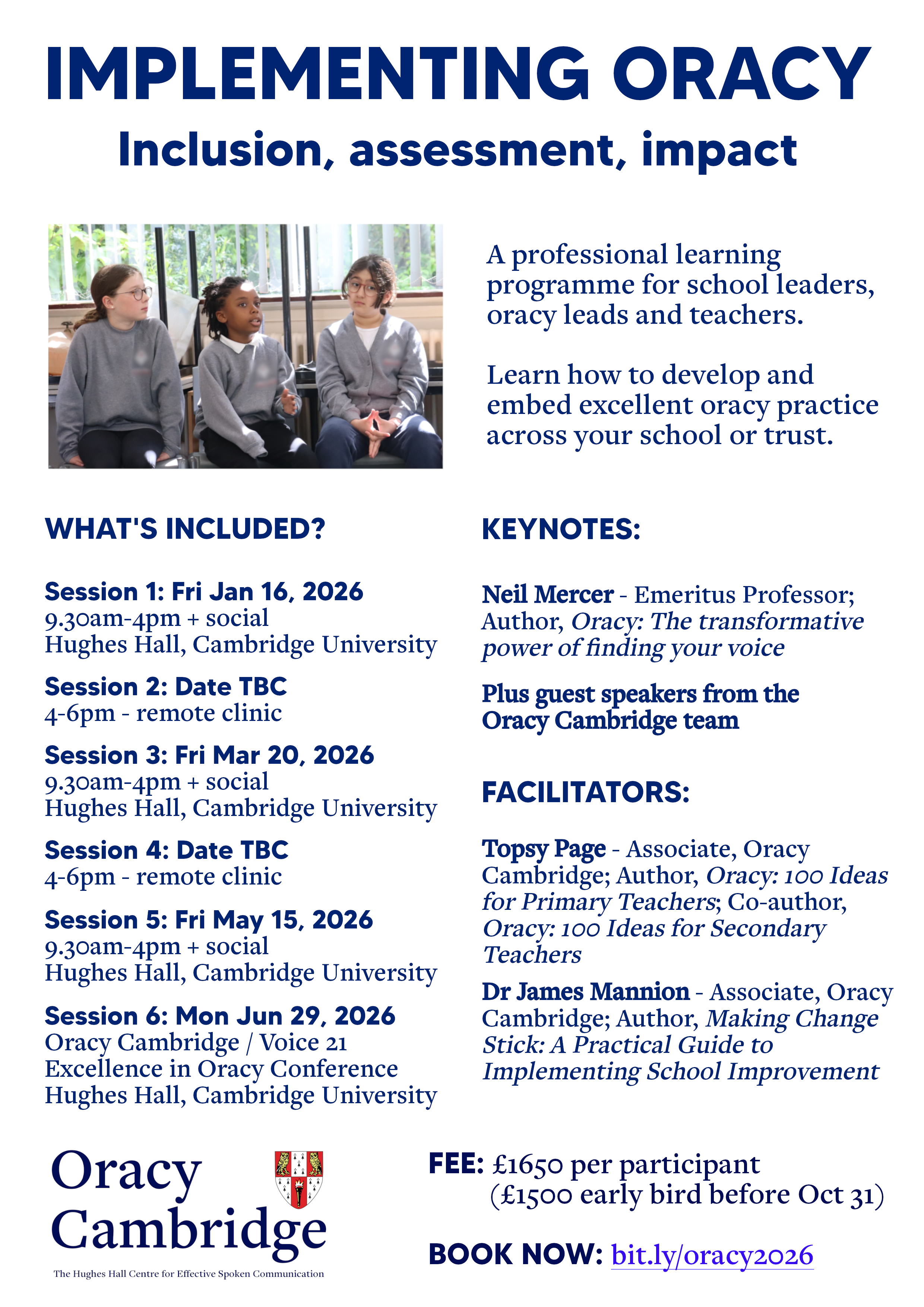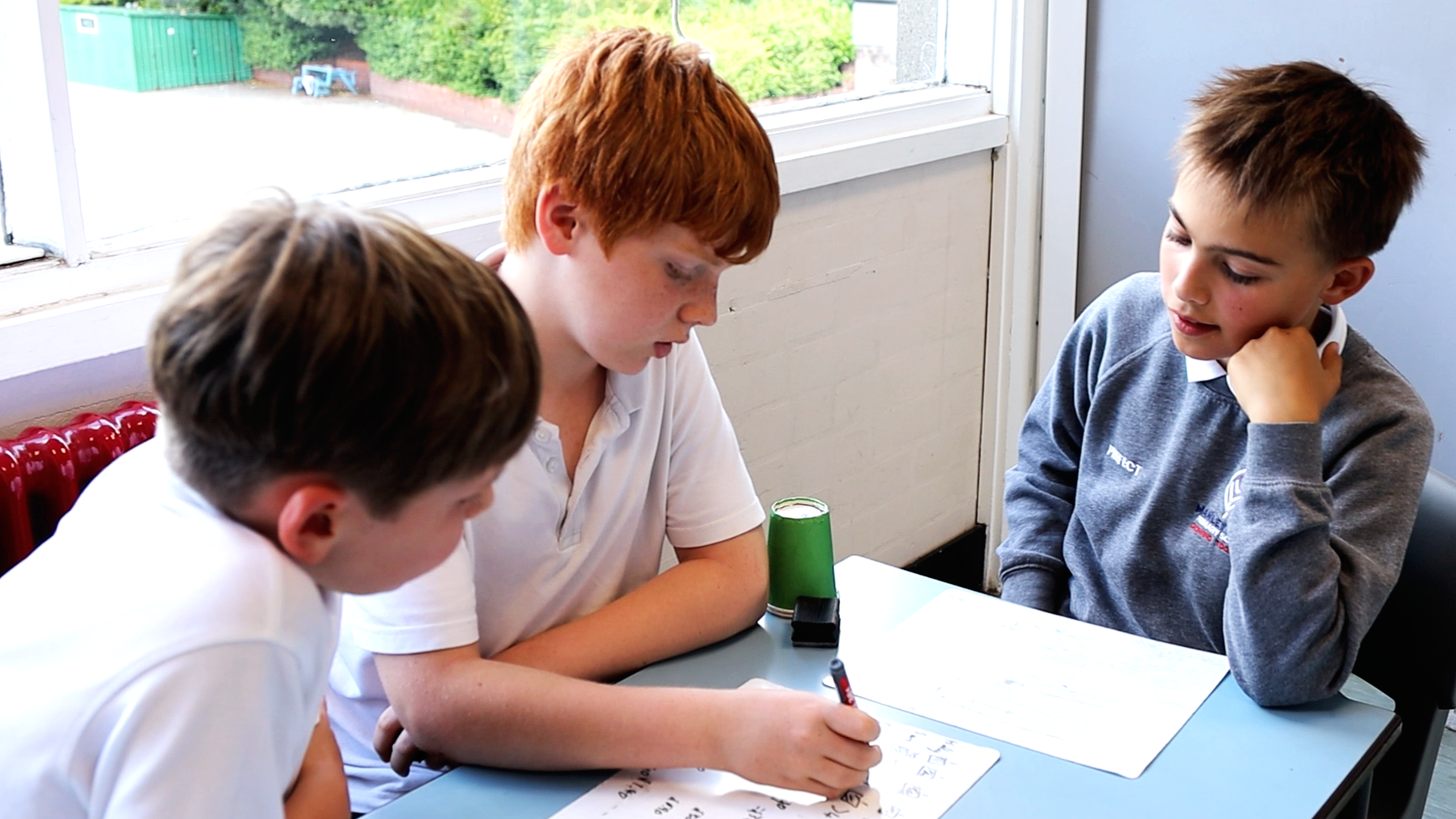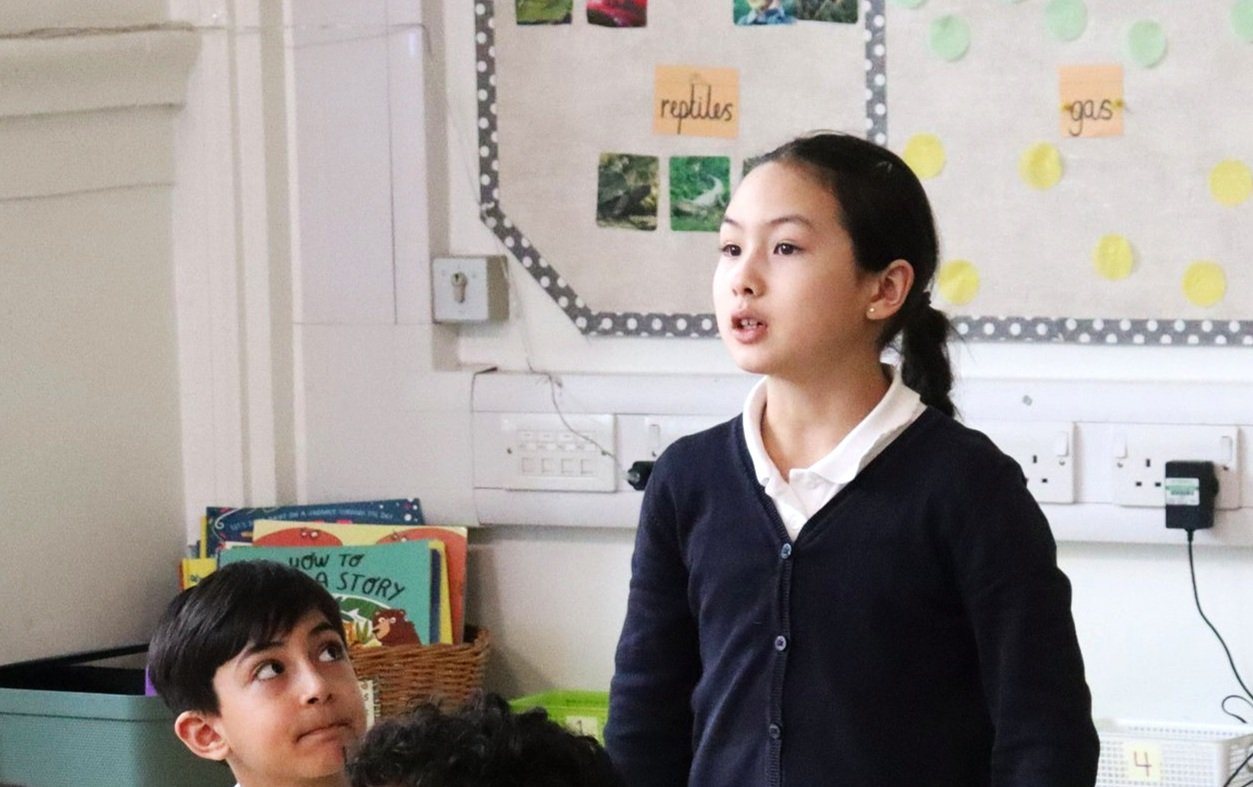
Whilst I strongly encourage teachers to have high expectations around children talking, special attention is needed for pupils with specific individual needs. This includes Selective Mutism, which is an anxiety-based mental health disorder. I recommend this book by Maggie Johnson and Alison Wintgens: Can I tell you about Selective Mutism?
Written from the perspective of a young girl, it’s a quick and easy read which gives fascinating and useful insights.
As a taster, here are three tips from the book:
I feel comfortable when you are chatty – talk to me in a normal way, show and tell me things so I know you are interested in me.
Please don’t ask me too many questions.
I like it if we have to speak or all answer together – I say the words inside my head or even move my lips sometimes.
There’s more about this book, and other helpful resources, on the SMIRA website:
www.selectivemutism.org.uk/resources/recommended-reading/
A great way to get students used to talking to different people
A structure which develops speaking and listening, and can be used across the curriculum
How one teacher raises accountability using a quick and simple technique
Collaboration is much more likely when pupils have to do a shared piece of work
A new in-depth professional learning programme for school leaders, oracy leads and classroom teachers
Give students opportunities to say and apply new vocabulary
Recommended reading for teachers and everyone else too!
Would you rather spend most of your time indoors or outdoors? And more
Learners recall fiction, processes, explanations and more by listening and building on what others have said
How one teacher got everyone thinking, talking, listening and learning
Give pupils the skills and resilience to work with a diverse range of people
Talk prompts and sentence stems to help learners express different types of thinking
Help students to use the language of Maths






























Can they remember what everyone else said?